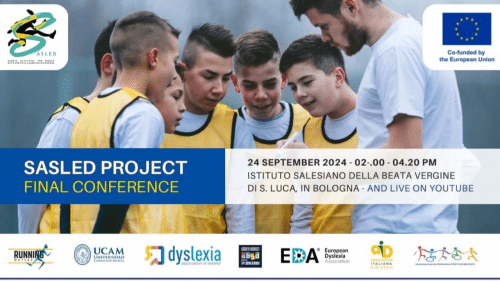There are tons of different methods to diagnose and test for dyslexia out there. The clinical practice varies widely, and identifying the screening methods, diagnostic processes and support measures for which scientific evidence has been established is a challenging task. Therefore the Swedish government has commissioned the Swedish Council on Technology Assessment in Health Care (SBU) to systematically review and evaluate the scientific evidence for diagnostic or screening tests and interventions for children and adolescents with dyslexia.
CHILDREN WITH DYSLEXIA BENEFITS FROM STRUCTURED TRAINING
If children with dyslexia practices the connection between speech sounds (phonemes) and letters in a structured manner they are able to improve their abilities to read, spell and comprehend the content of a text. The SBU are yet to conclude the benefits of other forms of literacy training or newer assistive technologies such as reading pens or apps in mobile phones, since there is not enough research done on this.
The Swedish Council on Technology Assessment in Health Care (SBU) has reviewed the scientific evidences for diagnostic or screening tests and interventions for children and adolescents with dyslexia.The resulting report on dyslexia is the first one of its kind in this area. The SBU shows that it is possible to test abilities that can predict dyslexia even before the child starts school. The benefits and eventual risks of early tests has not been evaluated in this summary. Nor has actions aimed for children before receiving reading training in school been evaluated in this report.
In Sweden there are more than 50 different tests and interventions used for children and adolescents with dyslexia. The SBU has made an inventory and evaluation on the tests for children/adolescents between the ages of 6 to 20 and found that none of them are scientifically evaluated. This means, according to SBU, that they can not state whether or not these tests are reliable or, if the measure what is intended. But at the same time it doesn’t have to mean that the tests are bad. More research is needed in order to find out.
The conclusions of the review, in brief, are:
- By training children with dyslexia to associate speech sounds (phonemes) with letters (graphemes) in a structured way, improvements can be made in their reading comprehension, reading speed, spelling, and ability to pay attention to the language’s phonetic structure (phonological awareness).
- Due to insufficient evidence no conclusions could be drawn regarding the usefulness of other forms of literacy training or assistive technologies (tools for support, compensate and develop reading skills such as apps in the mobile phone).
- Some tests may predict dyslexia even before children have been formally taught to read and write in school. For instance, rapid automatized naming (RAN), deficits in phonological awareness or letter knowledge can be detected early and may be associated with dyslexia. Benefits and potential risks of such early testing procedures have not been evaluated in this report. Interventions for children before they have begun school have not been evaluated in this report.
- Only few of the international diagnostic tests were scientifically evaluated. Dynamic Indicators of Basic Early Literacy Skills (DIBELS) and Woodcock-Johnson Test of Achievement (WJ) have subtests that are reliable: DIBELS- Letter Naming Fluency and WJ- Word Identification/Letter-Word Identification, respectively DIBELS- Nonsense Word Fluency and WJ- Letter Word Identification/comprehension are validated.
Read more about this report here: http://www.sbu.se/en/Published/Yellow/Dyslexia-in-Children-and-Adolescents–Tests-and-Interventions/




